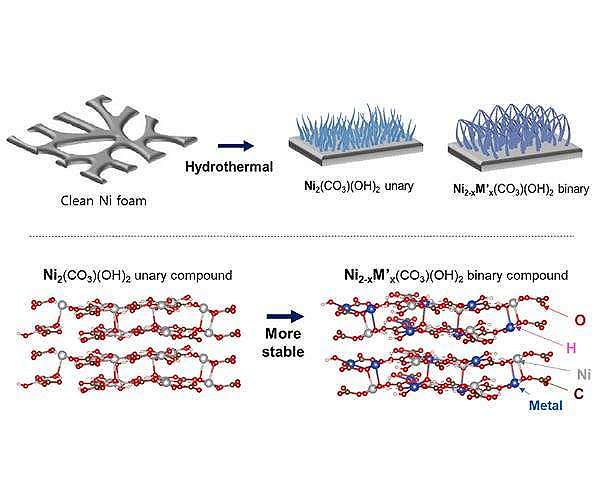Self-charging solar supercapacitors introduced in Korea
A joint research effort led by Jeongmin Kim, senior researcher at Daegu Gyeongbuk Institute of Science and Technology (DGIST), and Damin Lee, researcher at RLRC of Kyungpook National University, has achieved a groundbreaking milestone in the field of energy storage. The team successfully developed Korea’s first self-charging supercapacitor system by integrating solar energy technology with advanced supercapacitors, opening a new horizon for renewable energy applications.
The researchers addressed the limitations of traditional energy storage devices by using transition metal-based materials for the electrodes. Specifically, they designed electrodes using a nickel-based carbonate and hydroxide composite material, further improving performance through the incorporation of metal ions such as Mn, Co, Cu, Fe and Zn. This innovation led to significant improvements in conductivity, stability and overall efficiency.
The resulting device showed an impressive energy density of 35.5 Wh kg, far exceeding previous benchmarks of 5-20 Wh kg. In addition, the power density reached 2555.6 W kg, which is more than double the previous average of about 1000 W kg. This advancement enables rapid energy delivery, making it suitable for high-power applications. Long-term durability was also validated, with minimal degradation observed during repeated charge-discharge cycles.
To take the innovation further, the team developed a hybrid energy system that combines silicon solar cells with supercapacitors. This integration enables real-time solar energy capture and storage, achieving a storage efficiency of 63% and an overall system efficiency of 5.17%. The combined system represents an important step toward commercializing self-charging energy technologies.
“This study is a significant achievement as it marks the development of Korea’s first self-charging energy storage device that combines supercapacitors with solar cells. By using transition metal-based composite materials, we have overcome the limitations of energy storage devices and presented a sustainable solution.” energy solution,” said Jeongmin Kim, senior researcher at DGIST. Damin Lee from Kyungpook National University added: “We will continue to conduct follow-up research to further improve the efficiency of the self-charging device and increase its commercialization potential.”
Research report:Design of high-performance binary carbonate/hydroxide Ni-based supercapacitors for photo-storage systems


